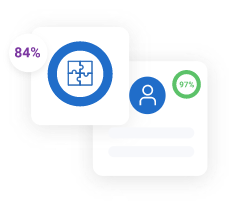- Application
- Information
Apply through Brive
We are official partners! Complete your application for free and earn benefits!
Free review on your application |
1:1 counselling by certified consultants |
Higher acceptance rate on your top choices |
Duration
4 Years
Language
English
Program Description
King’s English programs provide the pleasures and challenges of reading closely literary texts of our own time and many other periods and places. We offer courses in all the major historical periods of English, from medieval through contemporary; national literatures in English, including British, Canadian, American, and Postcolonial; courses in literary theory, drama, popular literature, film, children's literature, creative writing, and more.
In our small classes and seminars, our students acquire knowledge and skills in analysis, writing, and public speaking. Our graduates thereby prepare themselves for careers in, for example, education, publishing, law, marketing, media and communication, public relations, business, and industry.
In addition, the study of English allows us, as Wallace Stevens put it, to find ourselves "more truly and more strange." Come study with us, and see how reading, writing, and thinking about literature can cultivate a lifetime of curiosity, wonder, and pleasure.
From the 2nd year, students can pursue a major, minor or specialization.
There may be additional costs by this University.
In our small classes and seminars, our students acquire knowledge and skills in analysis, writing, and public speaking. Our graduates thereby prepare themselves for careers in, for example, education, publishing, law, marketing, media and communication, public relations, business, and industry.
In addition, the study of English allows us, as Wallace Stevens put it, to find ourselves "more truly and more strange." Come study with us, and see how reading, writing, and thinking about literature can cultivate a lifetime of curiosity, wonder, and pleasure.
From the 2nd year, students can pursue a major, minor or specialization.
There may be additional costs by this University.
Entry Requirements

Are you eligible to apply?
Sign up, check the entry requirements, and find out your compatibility with the program.
Curriculum
Need help applying to this program?
Schedule a free 20-minute counseling session today!
Similar programs |